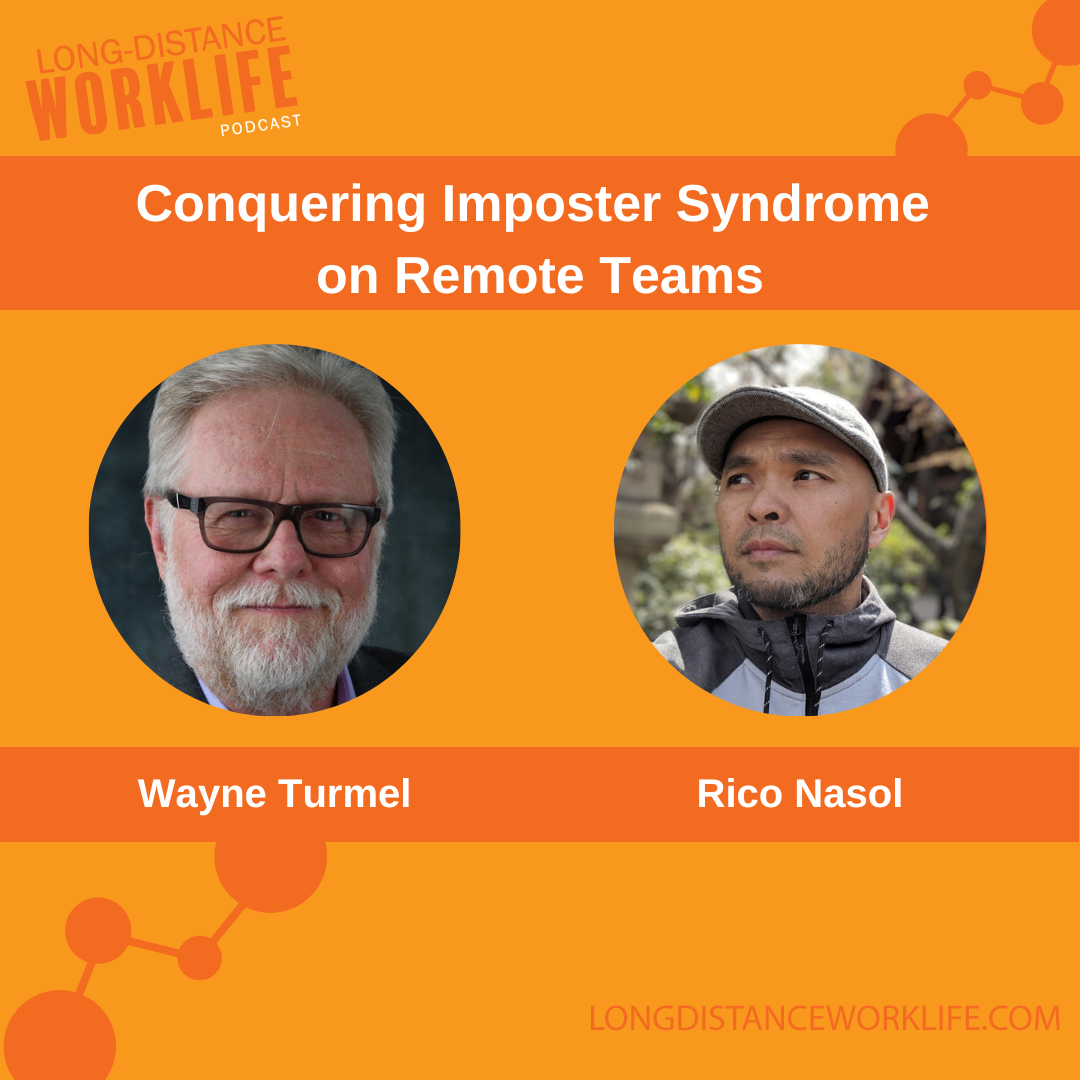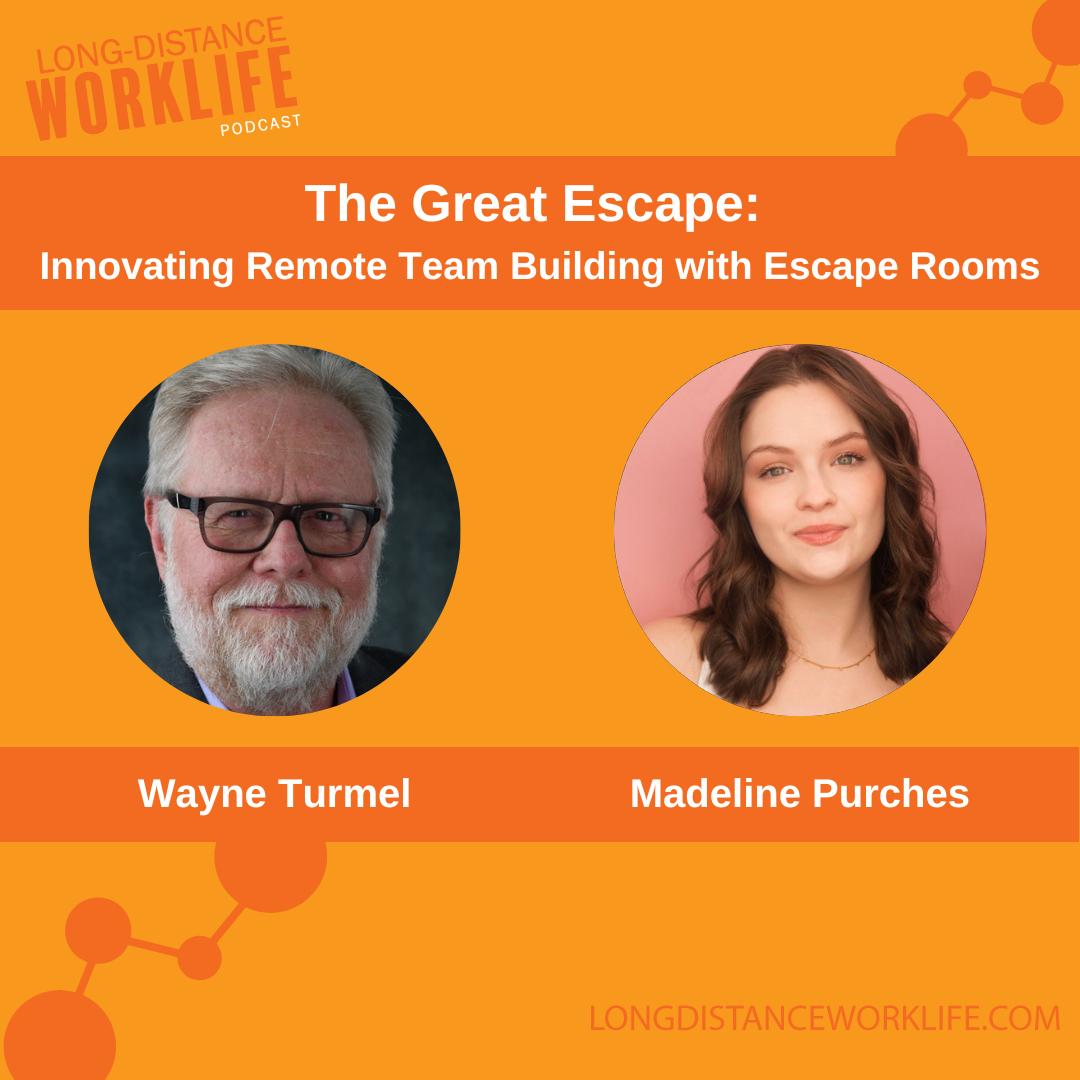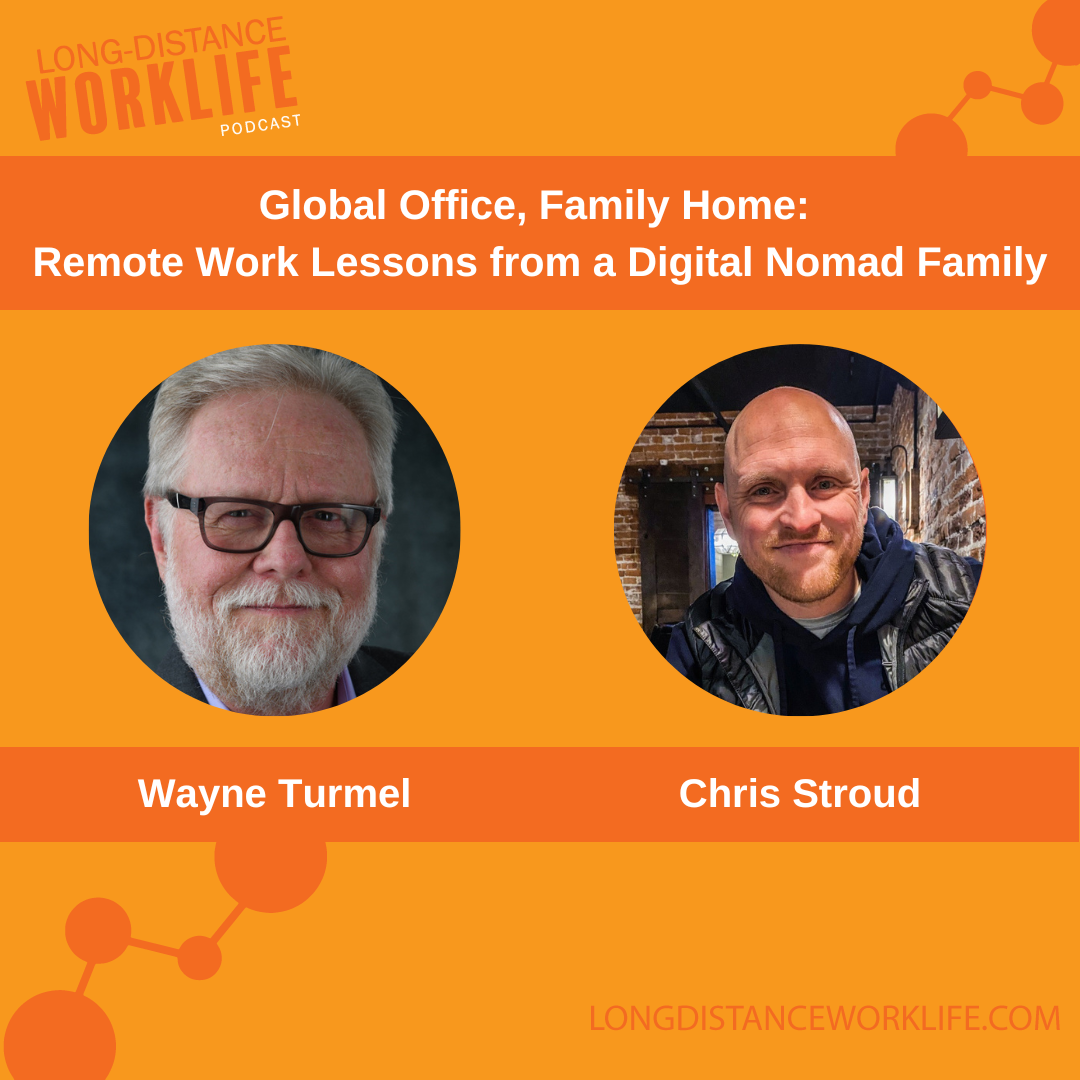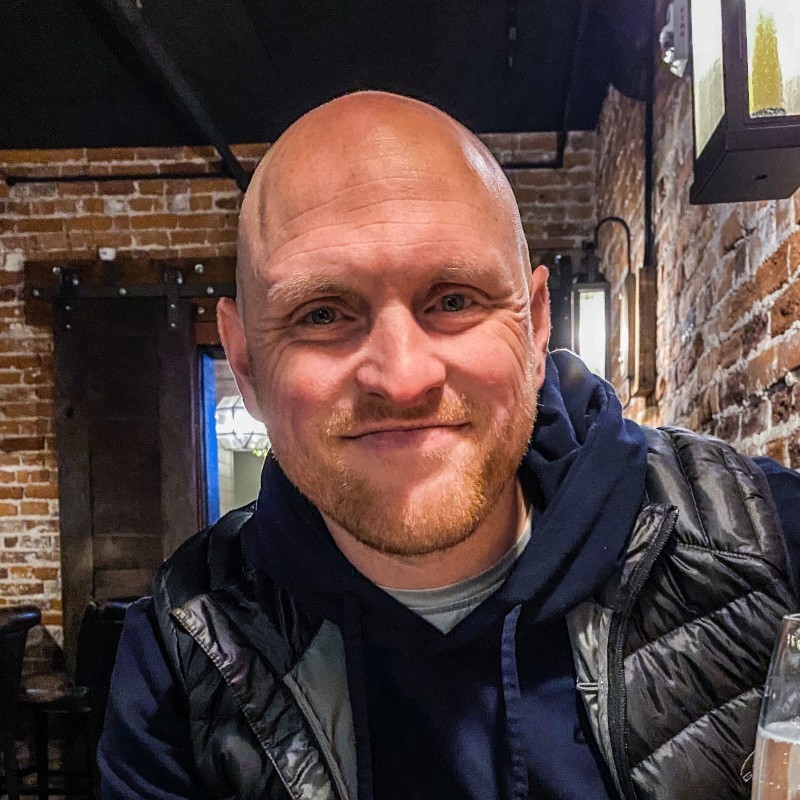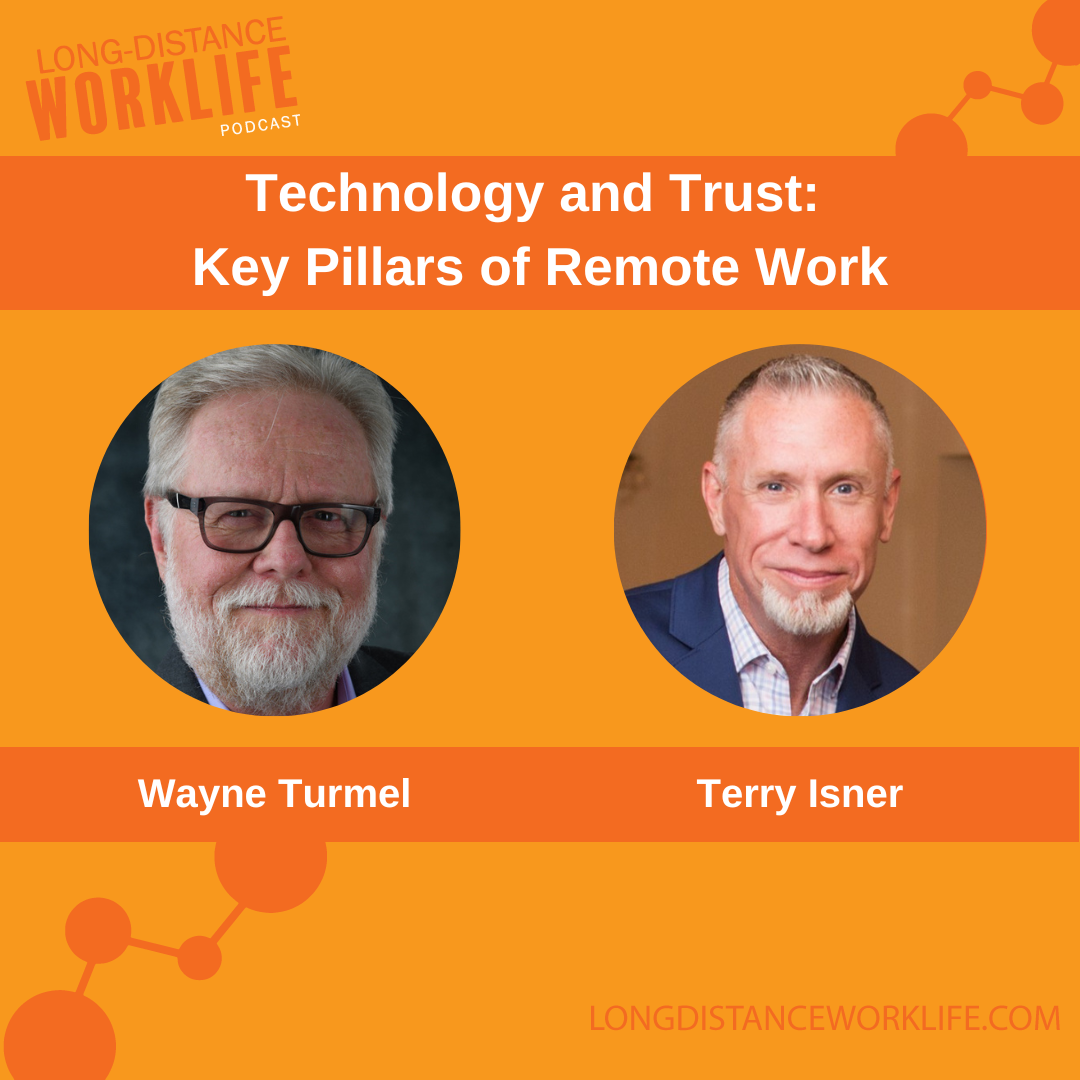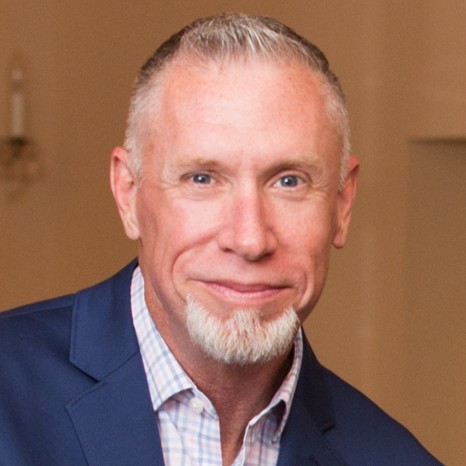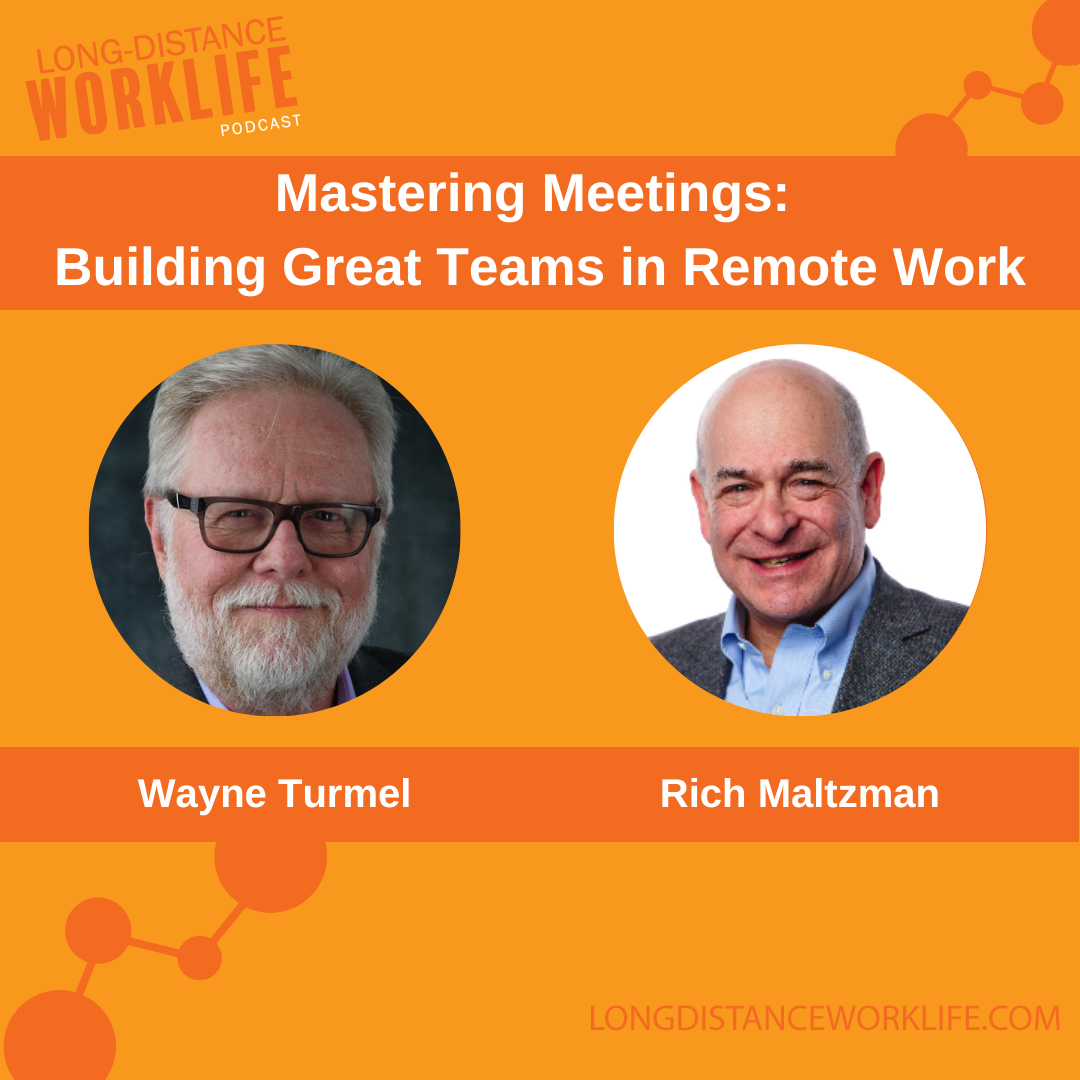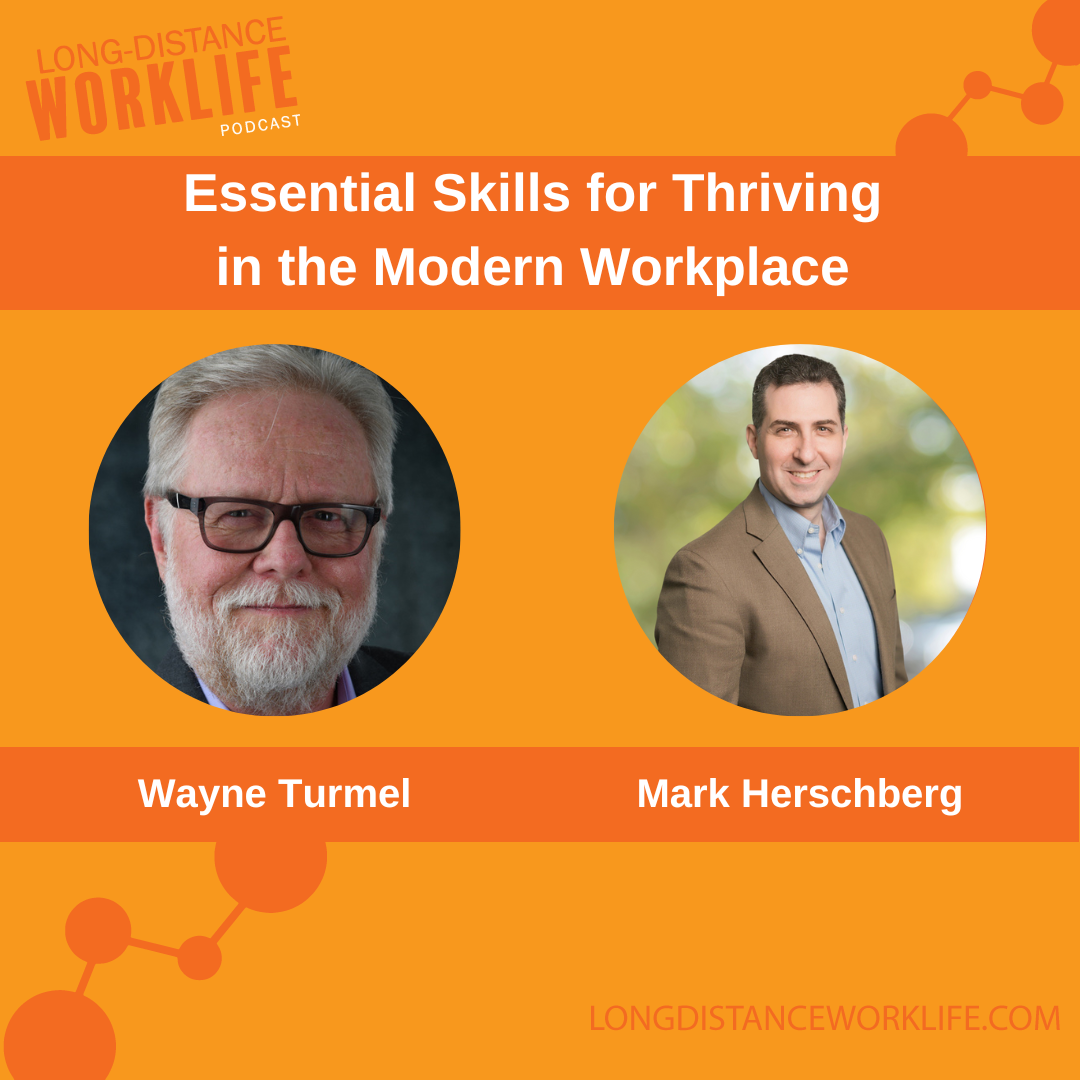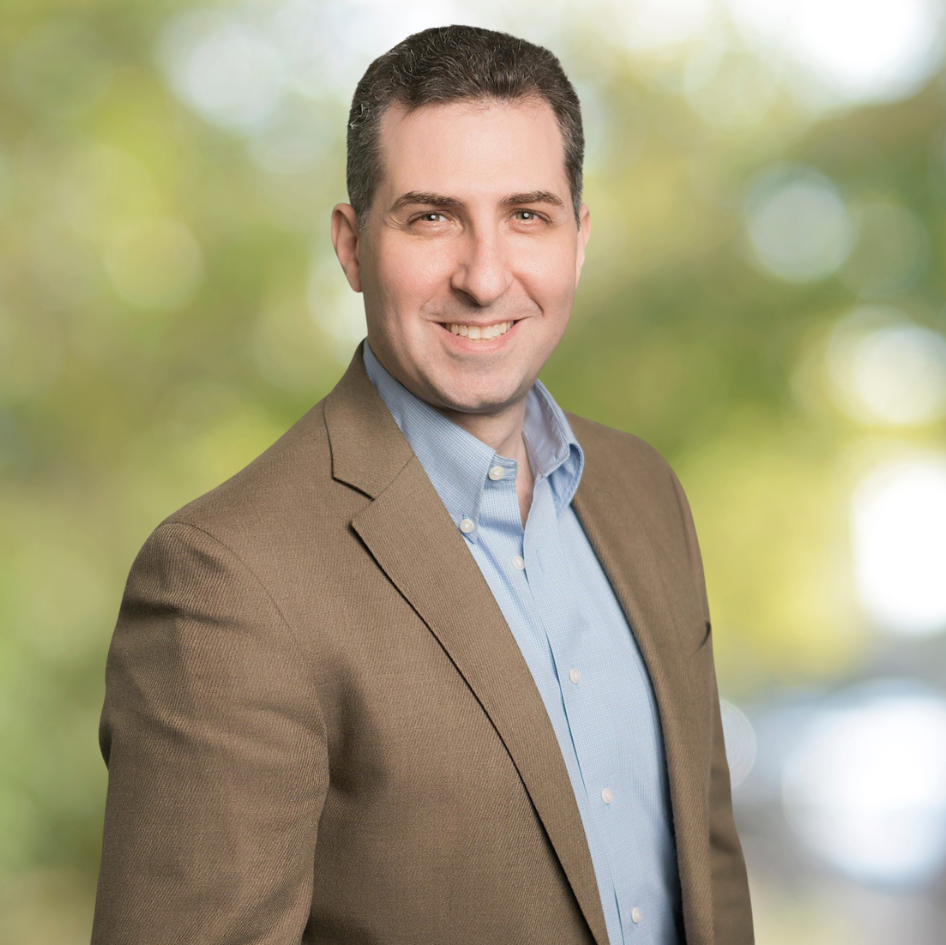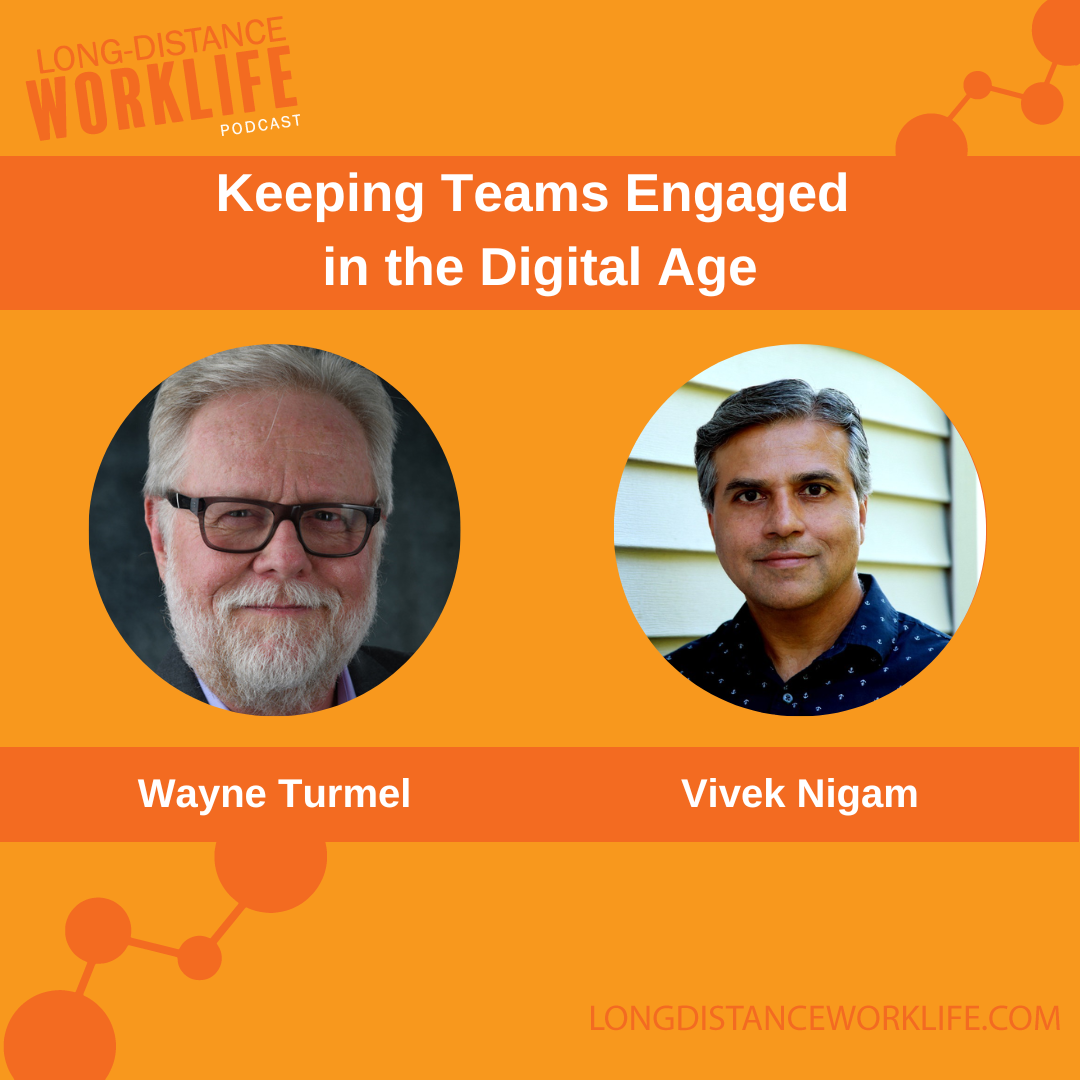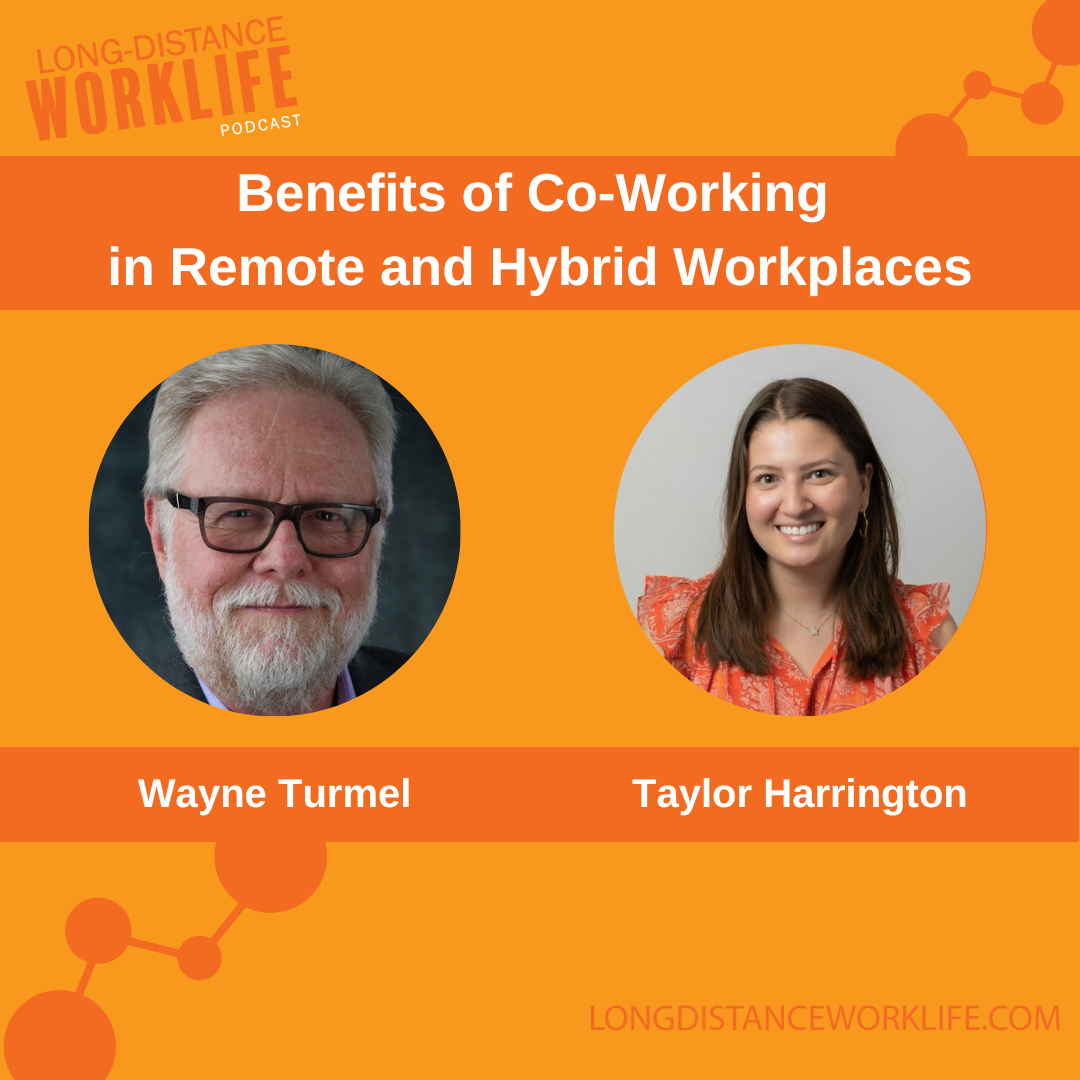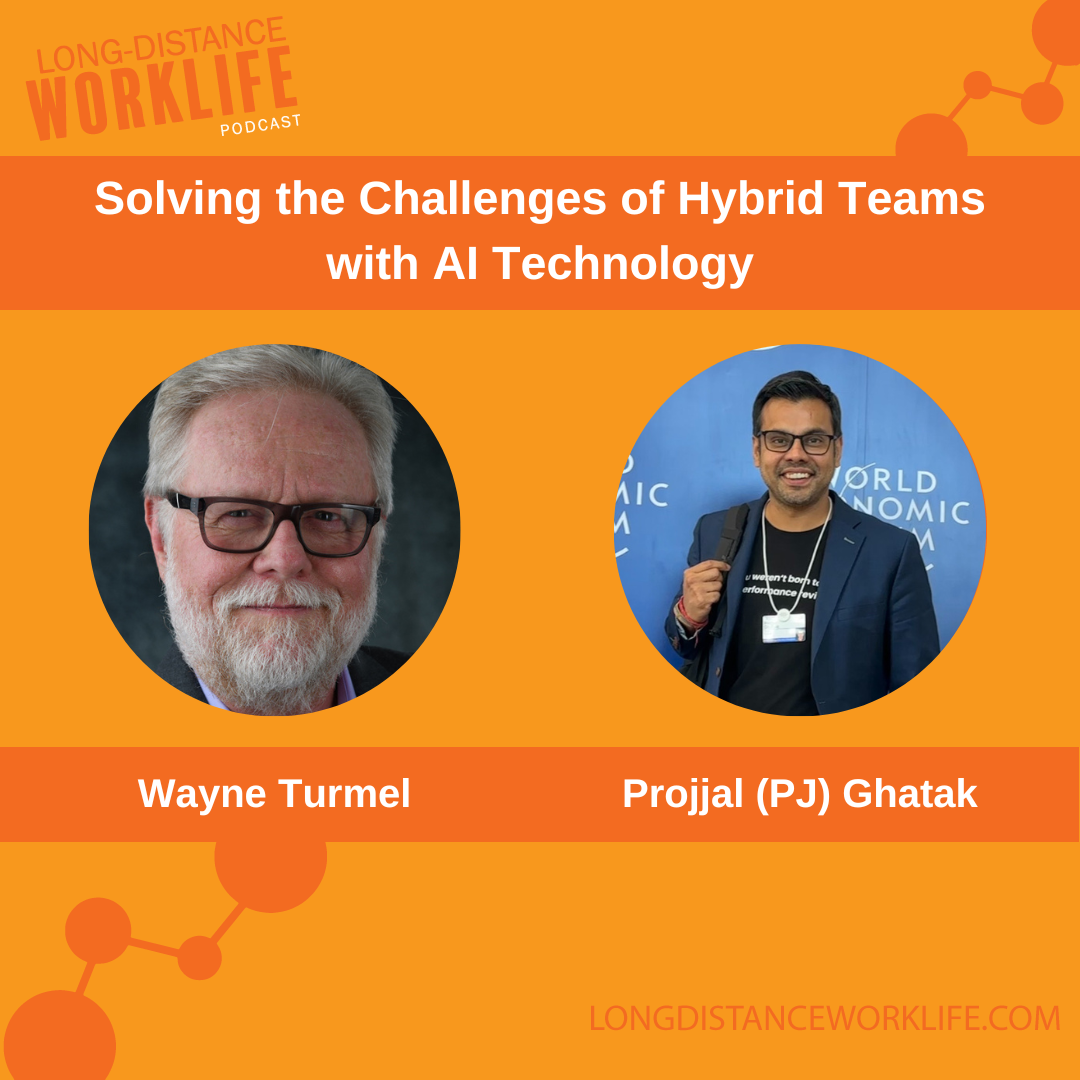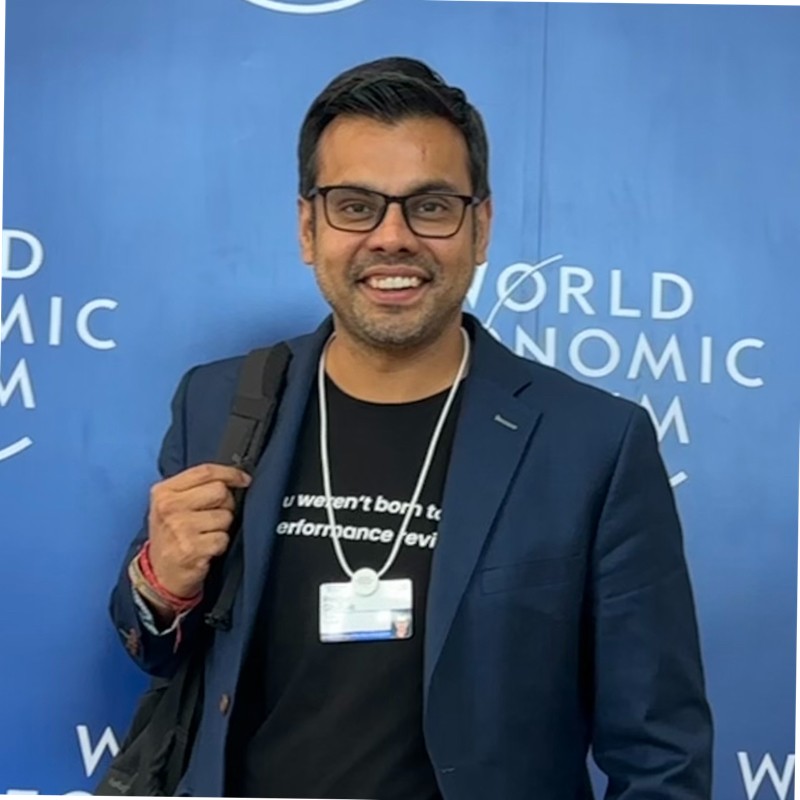Wayne Turmel explores the challenging world of remote and hybrid work leadership, focusing on imposter syndrome and its impact on leaders. Joined by guest Rico Nasol, a seasoned consultant and coach, the discussion delves into how imposter syndrome manifests, particularly in remote work settings, and strategies for overcoming it. Nasol shares his personal experiences and insights from his time at Netflix, shedding light on leadership development, the importance of understanding team dynamics in a remote environment, and the significance of self-talk in shaping a leader's confidence and effectiveness.
Key Takeaways
1. Understanding Imposter Syndrome: Recognize that imposter syndrome is common, especially in remote settings. It involves feelings of self-doubt and a belief that one's achievements are just luck. Acknowledge these feelings when they arise and remember that they are a common psychological phenomenon.
2. Combatting Isolation in Remote Work: In remote work, the absence of real-time feedback can intensify feelings of imposter syndrome. Counteract this by establishing regular check-ins and feedback sessions with colleagues or mentors to validate your work and progress.
3. Positive Self-Talk is Key: Develop a habit of positive self-talk. Remind yourself of your accomplishments and skills. Remember, the way you talk to yourself significantly impacts your self-confidence and perception.
4. Leadership and Imposter Syndrome: New leaders often face imposter syndrome due to a lack of formal leadership training. Focus on developing leadership skills actively and seek mentorship or professional development opportunities.
5. Learning from Rico’s Netflix Experience: Understand that feeling like an imposter can occur in any environment, even in high-performance cultures like Netflix. Realize that everyone has unique strengths and that no one is inherently smarter than others.
6. Managing Remote Teams Effectively: For remote team leaders, balance personal and professional goal-setting for your team members. This approach fosters a well-rounded team dynamic and supports individual growth.
7. Hybrid Team Dynamics: In a hybrid work environment, don't underestimate the power of team building. Focus on collaborative, focused work during in-person sessions to maximize creativity and team cohesion.
00;00;08;19 - 00;00;38;18
Wayne Turmel
Hi, everybody. Welcome to the Long Distance Work Life podcast, the show where we are really determined to help you thrive, survive, get through, keep the weasels at bay in this crazy world of remote and hybrid work. My name is Wayne Turmel. I'm with Kevin Eikenberry Group. This is a Marisa-less episode. I don't want to say Marisa free because that's sounds like she's an undesirable thing and she's not.
00;00;38;20 - 00;01;03;08
Wayne Turmel
But when we don't have Marisa with us, that means that we have an interesting guest, which we do today. We are going to talk imposter syndrome and getting out of your own head and all that good stuff with Rico and Rico is in the Las Vegas area with me, which is kind of cool. And Rico, how are you, man?
00;01;03;10 - 00;01;07;13
Rico Nasol
I'm good. I'm good. Good to talk to you, Wayne. Thanks for having me.
00;01;07;15 - 00;01;33;22
Wayne Turmel
Thank you for being here. So you are a consultant and a coach, and we will have links to your organization and all that good stuff. But one of the things that you and I have talked about offline, and I think this is really important for especially newer leaders, is this concept of imposter syndrome and not believing that you are good enough.
00;01;33;25 - 00;01;39;11
Wayne Turmel
Can you give us that kind of working definition of imposter syndrome just to kind of kick us off?
00;01;39;14 - 00;02;05;01
Rico Nasol
Yeah. So imposter syndrome, how it showed up for me and I think how it shows up for a lot of people is you don't really believe that you have talent and that potentially you are lucky and that at some point in time someone is going to find out you're not as smart as they think you are because you yourself don't feel like you have the confidence or the intelligence or the smarts to have achieved the things that you have.
00;02;05;04 - 00;02;23;21
Rico Nasol
And the thing that drives that imposter syndrome are the stories that we tell ourselves, whether they're true or not true. It's just a running narrative that goes on in our heads. And what happened with the pandemic in remote life. It's exacerbated by the missing of real time feedback. Right.
00;02;23;21 - 00;02;33;28
Wayne Turmel
So, okay, so tell me what you mean by that. By real time feedback, because some of us have spent our entire lives coping with this nonsense.
00;02;34;00 - 00;03;04;03
Rico Nasol
Yeah, great question. And I had to get used to it because I was a mom before the pandemic, mostly in person leader except for my global teams which were distributed. But since the pandemic, when that camera turns off, you're kind of left alone with the thoughts that you have. So if you don't think you if you don't have the confidence, you will continue to reinforce that in your head as opposed to when I was in in person and I did a presentation right when that presentation was over and I walked out, I'd have a colleague, I would go, Hey, how was that?
00;03;04;03 - 00;03;25;18
Rico Nasol
Did that go okay? Was I did I sound too fast? Did I answer the question like you get real time feedback from people that were in there just naturally walking to your next meeting. And in this zoom environment or this remote environment, you don't get that benefit unless you explicitly and this is what I advise people to explicitly ask for it, whether it's through Slack or chat or some sort of mechanism after the fact.
00;03;25;18 - 00;03;51;02
Wayne Turmel
Yeah, that's really important because one of the blessings, of course, of remote work is that you don't have a million people around you, but then you are left with the voice in your head. And if the voice in your head is unkind and I'm really not being facetious about this, you know, I always said I would fire any manager who talked to an employee the way I talked to myself.
00;03;51;05 - 00;03;55;00
Wayne Turmel
Absolutely. Our self-talk is so, so critical.
00;03;55;00 - 00;04;14;26
Rico Nasol
Yeah. And that's one of the things that so I coach leaders and almost the problem solving and it'll parlay into this is I think we've all had here's the story we've all had those jobs, whether it's in high school or college, you kind of you don't think a lot of it, but you end up being good at it and then they promote you to like the shift lead or something.
00;04;14;28 - 00;04;37;29
Rico Nasol
For me, I worked at a theme park and I got promoted to the warehouse lead and nobody taught me how to be a leader. They taught me about labor laws, they taught me about harassment, but nobody ever taught me how to lead people. And unfortunately, what I what happened to me in high school and college, I see happen in the world today where people, leaders, whether they intentional or not, assume, hey, this person is really good at the tactician.
00;04;37;29 - 00;04;54;29
Rico Nasol
Part of the job, so they must be a good leader and they never develop them in the way that leaders need to be developed. So in that way, when you're trying to pretend to be something that maybe you were never trained to do, that's where I come in. And a lot of the folks that I work with are either new leaders or executives.
00;04;55;05 - 00;05;13;27
Rico Nasol
They didn't have proper training. They don't know what they don't know, and they just have this low confidence and this imposter syndrome that, like the people who promoted me, think I'm good at what I do. I don't think I'm not good at what I do, and I don't know when they're going to find me out. So I'm either going to fake it till I make it or I need to get help.
00;05;13;29 - 00;05;14;17
Rico Nasol
And that's where.
00;05;14;17 - 00;05;42;22
Wayne Turmel
You find Do you find that that is. Here's the dirty little secret about our business, right? Is that the people who seek out learning, the people who want to get better at the job and are proactive of about doing that, are probably not the ones who need it the most. Because if they care enough to want to be good at it, right, they probably got some chops because wanting to do the job is a big piece of the deal.
00;05;42;24 - 00;06;04;24
Rico Nasol
Yeah, unfortunately that that is true. But what I do see is I put myself out there is people start to see themselves in me. So there's somebody that I worked with the he I don't want to say he was reluctant, but it was took him a long time to want to work with me because he didn't see anyone around him that looked like him.
00;06;04;26 - 00;06;26;22
Rico Nasol
Right. And so what I'm trying to do here and I think what we try to do with the work that we do is expose people, that there's more people like us out there, there's more ways to be successful. And nobody goes out and says, I want to be a toxic leader. Right? Nobody does that intentionally. But what happens is they have somebody who was never trained to train them and then they train their leaders the same way, or lack of training.
00;06;26;25 - 00;06;42;19
Rico Nasol
Right. And so you're right where, you know, the people who want to be better at it, I think are the ones that go after it. But I think it also takes leaders looking inward and saying like, hey, maybe I do need to get better than I can get the skills to help these folks get better. So I think it's a little bit of both.
00;06;42;19 - 00;06;47;28
Rico Nasol
You get people that want to be better and hopefully they will want to help the people that report to them.
00;06;48;00 - 00;07;08;10
Wayne Turmel
Now, one of the things, the way we connected is you heard the interview you have with Janice Chalker. Yes. On being a introvert and a remote leader, and Marisa will link to that in our show notes. For those of you who are interested, you're an introvert. Tell me a little bit about your journey because you've worked at some big oil companies.
00;07;08;13 - 00;07;17;03
Rico Nasol
Yeah, I so for me, introversion is not like shyness because I'm not shy, right? So, you know, that's a really.
00;07;17;03 - 00;07;21;22
Wayne Turmel
Important distinction right there that we need to put a pin in.
00;07;21;25 - 00;07;38;05
Rico Nasol
Yeah, and I say that because in certain moments I can be shy, but, you know, like if I'm comfortable, you know, I can have a conversation and things like that. But where my introversion shows up is like, I'm not the loudest person in the room. It's not because I'm not shy, it's just not my nature, right? I'm analytical.
00;07;38;05 - 00;08;08;20
Rico Nasol
I need time to sit with things. And then after big presentations to like four or 500 people, I cherish the time to myself just to recharge, you know, just to get my batteries back. I know some people I worked with that Netflix and why this was I had so much imposter syndrome in the beginning because you have this tape type A personality there where they're the biggest voices in the room and after like a 500 person presentation, they're like excited, mingling everywhere and like talking to everybody in the room and answering every single question.
00;08;08;23 - 00;08;29;21
Wayne Turmel
So an organization like Netflix is really interesting, and maybe you can check my assumption here because Netflix is what I call show business adjacent. It's full of people who want to be in show business and want to be in the industry. And at its core, it's a data and and analysis company.
00;08;29;23 - 00;08;47;28
Rico Nasol
Yet it's interesting because I was there for almost nine years and when I first started we were just an aggregator. So we weren't much of an entertainment company. We used to call ourselves a tech company that happens to be an entertainment. And then towards the last maybe four years of my career is when we had more originals, more productions.
00;08;48;05 - 00;09;10;26
Rico Nasol
We were an entertainment company backed by tech, so I was there for that shift. And the culture I started in was very Silicon Valley, like everybody is a Type A, everybody's high performing all those things. And so when I started there, they recruited me. I felt so much like an imposter, like I'm not as smart as these people think they are.
00;09;11;01 - 00;09;31;23
Rico Nasol
And one thing that I have to coach out of people is nobody is smarter than anybody else. They just have more experience in certain things. But what I would tell myself is Netflix. When I first got there, everybody sitting across from me is the smartest person in their field, so why and why am I here? But nobody said that that was just my negative self-talk, right?
00;09;31;24 - 00;09;42;17
Rico Nasol
And it's my fear of being found out that made me speak to myself that way. And it's almost like you said, if I talk to anyone else the way that I talk to myself, it'd be terrible.
00;09;42;20 - 00;10;05;29
Wayne Turmel
I would be in a jar all day. Yeah, to tell you the truth. Now, something about Netflix that I read not too long ago, which is kind of fascinating, is there's kind of a famous PowerPoint presentation, if you can call it, if you can call any PowerPoint presentation, famous that the CEO of Netflix was trying to explain the culture.
00;10;06;07 - 00;10;13;27
Wayne Turmel
And he came up with something called the Keeper rule that you work kind of under that mindset, right?
00;10;13;29 - 00;10;35;19
Rico Nasol
Yeah, I did. And it's interesting because this is probably one of the biggest things I came across and had a debunk. And if you go to Glassdoor, you'll probably see all kinds of reviews about keeper test and culture of fear. But it's the idea that if you built this team again, would you keep this person right if you had to build a team over?
00;10;35;21 - 00;10;48;24
Rico Nasol
And so the way it reads, it seems like, you know, you're just constantly every week what I keep this person, I keep that person. And in actuality, that's not how it played out, at least how it played on my team, because that would be a very toxic environment.
00;10;49;01 - 00;11;10;23
Wayne Turmel
Yeah. What is it like? Because there are lots of it was like Jack Welch came up with, well, you always fire your bottom 10%, which is fine for a couple of years when you have people who are underperform forming. But once you have a performing team, it turns really toxic really fast because everybody's trying to make sure they're not in the bottom ten.
00;11;10;23 - 00;11;21;20
Wayne Turmel
Right. So all these good ideas very often get used for evil instead of good. So how did you apply it and how do you not make that toxic?
00;11;21;22 - 00;11;43;08
Rico Nasol
Yeah. So on that point, you had the lowest churn rate and I had 235 people organization and over my nine years had like a 3% churn and then kind of encountered voluntary set a really low churn rate for my team. But so how I thought about it was maybe during annual review time, maybe once or twice a year and it wasn't like every week or even month.
00;11;43;11 - 00;12;00;22
Rico Nasol
So I would think, okay, if I because tech moves fast. So Netflix, we are always changing and evolving, building new tools and new skill sets. So I would look at my team and say, Hey, if I had to build this team, knowing what I know now, would I keep the folks that I have? And for me, it wasn't an exercise in letting go.
00;12;00;24 - 00;12;19;18
Rico Nasol
People is more of an exercise if I have the right people in the right roles. So maybe at this point in time where somebody was a motion graphics designer, now they need to move into like a UX field where they can actually do animations on the product. So it wasn't a who can it who do I need to let go?
00;12;19;20 - 00;12;27;04
Rico Nasol
It doesn't fit anymore. It's how can I be a better leader and find better fits for an evolving company in an evolving organization.
00;12;27;06 - 00;12;50;03
Wayne Turmel
One more time for the people in the back because that's so important. And also I would imagine that a piece of that is, you know, this person was a functioning member of the team and and they've been good and the team has changed. How do we get them to that new role, Right? How do we develop them? How do we train them?
00;12;50;03 - 00;12;51;27
Wayne Turmel
What do they need?
00;12;52;00 - 00;13;16;16
Rico Nasol
Right. And I can give you a story, an example, perfect example where I essentially automated a team. I led out of a job. And so it was a new AI technology, a computer vision technology. We were like trying to pick images, right? And we first had humans doing it and then eventually got to the point where they were so good that we could have computer vision do it, and we needed just less people.
00;13;16;16 - 00;13;41;06
Rico Nasol
We needed people just to verify and select. And most people would say, okay, so this team's job is eliminated. Let's just get rid of that team. Well, we actually did is, hey, they have value because they know the workflows they know all these other things, and they were big enough to work towards eliminating their own roles. So that told us that they had so much more value because the way they might in their minds thought the way they were strategic.
00;13;41;14 - 00;13;57;03
Rico Nasol
And so we actually we found roles, new roles on new teams for all of them in ways that they could find more automations. So perfect example where most companies would reorganize and let go. We reorganized and found better fits for their future.
00;13;57;07 - 00;14;19;17
Wayne Turmel
So in the little bit of time that we have remaining Rico, you know, you have, as you said, you had international teams, you had give us a couple of your best practices and what you coach your clients to do, first of all, for totally remote teams and then for hybrid teams.
00;14;19;19 - 00;14;38;17
Rico Nasol
Yeah. So for we'll start with totally remote and I'll talk about things how I, how I developed my teams and my leaders and I'll talk about the things I do for myself, for my imposter syndrome. So some of the things I do with my teams and my leaders is it's not nothing new, but I have everyone come up with three personal and professional goals.
00;14;38;17 - 00;15;09;27
Rico Nasol
It needs to be balanced. So the personal goals is so we can check in on each other. On like if you want to travel more, if you want to get into more cooking, things like that, and we have something to anchor our one on ones into. And I also provide opportunities and for real time feedback. So like this story, I said, if I have a director of mine who's presenting immediately after all, like, Hey, you want to talk about how it went or, you know, like, here's some things that went really well or I'll send I'll just send feedback in to know, Hey, this, this part really went really well.
00;15;09;27 - 00;15;29;15
Rico Nasol
I loved how you did this. If there's anything to talk about, it'd be like this. So when they are in a vacuum with their own thoughts, they have my feedback and they have my thoughts and my reassurance that they did a good job, that whatever negative self-talk they have is not valid. So that's when.
00;15;29;22 - 00;15;51;10
Wayne Turmel
I also want to tell you something you said because you said you get them to give you three personal goals and three professional goals and a lot of managers do that. It's kind of rote. You do it at the beginning of the year and then they never pay any more or attention to those personal things, right? It's like, okay, I did that check, check, check.
00;15;51;12 - 00;15;54;02
Wayne Turmel
But our one on ones are going to be about work.
00;15;54;04 - 00;16;15;07
Rico Nasol
Yeah, I mean, it's really important. I can tell you right now, even though I'm not there anymore, most of my team is still there. I can go back to my team Annapolis Recruiter studio and tell you who their kids are, who they're seeing, who they're married to, like, what their goals are, all those things. Because that's the thing that's important with leaders is you make to make everyone around you better.
00;16;15;07 - 00;16;35;10
Rico Nasol
You have to know who they are, right? You can't just make everyone about everyone better. In general terms, you need to really get to know them as people because people some people are type A, some people are type B, some people show up differently than others. And especially in this remote world, if you don't understand how each person shows up best, you start to create exclusive environments.
00;16;35;13 - 00;16;55;09
Rico Nasol
I have folks on my team who show up best in my comments in a Google doc and are deathly afraid of speaking in public, but they show up really well in comments and in in documents. So if I just relied on, I need to hear you to see you, I'm going to exclude very high level contributors on my team.
00;16;55;09 - 00;17;02;24
Wayne Turmel
Wow. Real quick, hybrid teams, anything specifically to that environment?
00;17;02;26 - 00;17;29;17
Rico Nasol
Yeah. So hybrid teams don't don't underestimate the power of team building. I did a lot when we were in person and just getting in a room and whiteboarding. That's the thing I think is most important when you get to be in person is not just sitting in a room. I think it's getting together and actually working on something tangible together and really get the creative juices running and that's when you get the most creativity and engagement from your folks.
00;17;29;19 - 00;17;55;06
Wayne Turmel
Yeah, I think that's such a key point. And again, we're just this is me underlining verbally, but this notion that being together in the same room doesn't create camaraderie or teamwork or innovation. It's focused work. And if some of the people are in the room and some of them aren't, it's still that focused work that's going to do the job.
00;17;55;09 - 00;17;57;20
Rico Nasol
Exactly. Exactly.
00;17;57;23 - 00;18;27;24
Wayne Turmel
Rico, I am sorry to say that is the end of our times. So much good stuff. Rico is in Henderson, Nevada. He is. He has his own consulting company, Rico Nassau Coaching and Consulting. We will have links to that in our in our show notes. Marisa will do her usual terrific job of that. Niko, I'm going to say goodbye to you momentarily while I close up the show.
00;18;28;01 - 00;18;57;25
Wayne Turmel
That is the long distance work life for this week. If you enjoyed it, please, please, please, like subscribe. You know how podcasts work. We beg for your feedback, but we actually want your feedback. So if you have questions, comments, vicious personal attacks, if you have a pet peeve or a topic that you'd like Marisa and I to tackle or ideas for a guest, please reach out to us on LinkedIn or our names.
00;18;57;25 - 00;19;27;22
Wayne Turmel
Wayne at Kevin Eikenberry dot com Marisa Kevin Eikenberry dot com. If you are trying to reorganize your team, thinking about what your new work should look like, we urge you to check out our new book, The Long-Distance Team Designing Your Team for Everyone's Success. That's it. I hope you're enjoying the show. We really love bringing you a mix of kind of thoughtful trends stuff and tactical practical work.
00;19;27;24 - 00;19;45;04
Wayne Turmel
Very, very smart people like RICO. We're sure that you enjoy it. Check out all our past episodes. You can do that at long distance work life dot com as well. And for now, next week we'll be back with Marisa, my name is Wayne Trammell. Don't let the weasels get you down. We'll see you next episode.
Featured Guest

Name: Rico Nasol
Bio: Rico Nasol is an accomplished executive and leadership coach with over twenty years of global experience, including key roles at Zappos and spearheading the Netflix Creative Studio. Known for his expertise in executive coaching, content optimization, and innovative technology, including machine learning and computer vision, Rico is dedicated to redefining leadership and fostering environments where balance and engagement thrive, empowering individuals to unlock their full potential. His career is marked by a strong focus on team building, strategic planning, and driving engagement across various domains, from creative direction to product management and user experience.
Timestamps
00:00 Introduction
01:07 Exploring the Concept and Personal Experience of Imposter Syndrome
02:05 Impact of Remote Work on Imposter Syndrome and the Role of Feedback
03:51 Importance of Self-Talk in Leadership
04:55 Challenges Faced by New Leaders and Transition to Management Roles
07:08 Rico Nasol's Personal Journey and Experience with Introversion at Netflix
14:19 Best Practices for Managing Remote Teams
17:02 Approaches to Leading Hybrid Teams and Team Building Importance
18:27 Closing
Related Episodes
Additional Resources
Order The Long-Distance Team
Remote leadership experts, Kevin Eikenberry and Wayne Turmel, help leaders navigate the new world of remote and hybrid teams to design the culture they desire for their teams and organizations in their new book!


